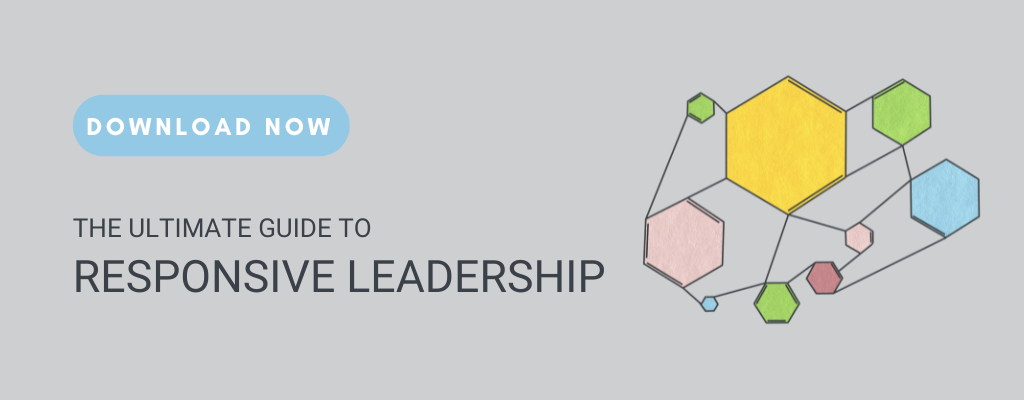
strategic planning with students, for students
瑞士vs喀麦隆亚盘赔率 | strategic planning
i support school teams nationwide through the process of unpacking survey and focus group data from their communities. one consistent trend across school districts is that most adults overestimate their ability to understand and empathize with their students’ experiences at school. even teachers who regularly work directly with students and have the best intentions tend to misrepresent students’ feelings and beliefs about their academic and social experiences at school.
this trend is particularly problematic when a district’s strategic plan, the framework that guides decisions impacting students most, is written solely by adults. nearly every school district strives to write a student-centered strategic plan, but how student-centered can your plan be without actively including student voice throughout the planning process?
amplifying student voice in the process
one district in upstate new york understood this from the very beginning. nestled in the northwest corner of rural wayne county along the beautiful shores of lake ontario, wayne central school district is relatively small, but the positive impact they have on their students and community is anything but.
the first time i met superintendent joe siracuse, he made it abundantly clear that his primary goal in the strategic planning process was to honor, serve, and accurately represent the students of wayne csd. before he selected any teacher, parent, administrator, or staff member to serve on the steering team, dr. siracuse added students jonah and kaitlin to the team, and their participation proved to be integral to the process and resulting strategic plan.
jonah, a junior at wayne central high school, recognized the value he brought to the strategic planning process early on when the team started digging into survey and focus group data. “as we were going through the student comments, i thought, ‘oh yeah, i’ve heard about this. i know everything they are talking about, and i understand what they mean. i know the students’ problems.’ i felt like i could explain to the adults in the room what they were trying to say.”

this understanding of the student experience was especially important as the team analyzed data collected during the community engagement phase of the strategic planning process. for two weeks, our 瑞士vs喀麦隆亚盘赔率 team and the wayne csd steering team worked diligently to engage over 1600 students, teachers, families, board members, and community members through focus groups, town halls, empathy interviews, and a survey. from there, the steering team read through every comment shared by their community and worked to objectively identify trends that would guide the rest of the strategic planning process.
jonah was intrigued by the data regarding student engagement and motivation. “i feel like students who aren’t in advanced classes feel like they aren’t as smart as the kids who are, so when they get bad grades they are just like, ‘oh, well.’” when asked why he thought this was the case, jonah cited the impact of being selected for advanced courses and not. “when we got selected in 8th grade for advanced classes, the ones who didn’t [get selected] just stopped caring as much, i think. they just aren’t as motivated because they see it as “oh, i’m just in the regular classes, so why try?’”
jonah hoped the strategic plan would ensure all students are adequately challenged and supported because he felt this would be an effective way to increase student efficacy and motivation. the strategic plan includes a commitment to “appropriately challenge and enrich all students,” a direct result of his perspective and the analysis of community feedback.
generating student-centered solutions
kaitlin, a sophomore, realized her value in the strategic planning process when the steering team began ideating around possible solutions to challenges identified from the community engagement data. ”i really liked being able to think about ways we could make our school better,” she explained. kaitlin said her favorite part of the process was brainstorming possible actions and strategies in response to “how might we” questions.

in response to the question, “how might we increase student interest in classroom curriculum and instruction?” kaitlin suggested incorporating more student voice and choice. “making classes more student-centered where kids can show what they learned in the way that works best for them would make students a lot more interested in their classes,” kaitlin explained. “not everyone is good at the one thing that is assigned, like an essay or presentation. i don’t feel like most teachers allow students to really shine and show what they are good at. i think if they [allowed students to choose how they show their learning], they would understand the kids better and know how to reach them. i also think students would be less stressed by school work if they were able to make more choices like these in their classes.” sure enough, kaitlin’s idea made it into wayne csd’s strategic plan in the form of a commitment to “amplify student voice in learning.”
while kaitlin and jonah played an important role in creating student-centered solutions, both noticed early on that they weren’t the only ones advocating for students. when asked what it was like to serve alongside adults in this process, jonah said he got to see a side of teachers and administrators that students don't always get to see. “they definitely try to find solutions to whatever problems are happening within the school, and that’s really nice to know. they care about us a lot–a lot more than most students think they do,” he explained.
kaitlin had a similar reflection. “students look up to all the adults in the building, but they don’t really get a chance to interact with them beyond their classes. being on the steering team allowed me to get to know my principal and some of the teachers a little better, and it made me realize that the adults really are here for you and they really do care about the students.”
the impact of the process on the students involved
while kaitlin and jonah have had many experiences and successes at wayne csd, both students said they were a little nervous when they were first asked to serve on the steering team. neither had ever served on a team or committee made up of mostly adults, and this was a little intimidating at first.
“when we were going around introducing ourselves at that first meeting, i couldn’t even get my words out,” kaitlin explained as she thought back to the kickoff meeting where she and jonah sat in the district board room alongside 21 adults. “but by the second session, i felt so much more comfortable speaking in front of everyone. i realized that no one in the room is going to judge what you say, and everyone is open to any idea you have.”
jonah agreed. “i was definitely scared to speak up at the first meeting, but as i got to know everyone better i started to realize that it was safe to ask questions and make mistakes. you know, we are all just there to make our school better. realizing that helped me open up more.”
the students were referring to an integral element of successful teaming: psychological safety. psychological safety is the shared belief that all ideas, questions, and feedback are welcome and that it is safe to take risks and admit mistakes. dr. siracuse sums this mindset up with a sentiment he frequently shares with his teams: “ideas, not people.” he explains that this mindset is key to ensuring his people not only feel comfortable sharing their ideas but also pushing back or challenging someone else’s ideas when necessary.
watching adults model psychologically safe behavior helped the students realize that it was okay for them to do it. jonah explained the nature of the steering team sessions and how it was beneficial for him to see the adults in the room problem-solve, ask questions, and even struggle to make a decision at times. “it was definitely a different experience,” he explained. “it’s not like teachers just going through a lesson, which is all we normally see.”
the impact of creating a psychologically safe environment goes beyond just idea generation. both jonah and kaitlin reported experiencing personal growth as a result of serving on the steering team and collaborating with others in this safe space. “this experience has helped me a lot personally,” kaitlin stated. “my confidence has grown, and i am more willing to speak my ideas and thoughts, especially in front of adults.”
derek demass, assistant superintendent of wayne csd, saw this growth in kaitlin firsthand. “as we progressed through the sessions, you could see her confidence grow to where she would eventually volunteer to share a summary of what our group had discussed aloud to the rest of the team, and i was just so proud,” he noted. “this process gave kaitlin the opportunity to see who she is and what she is truly capable of. she doesn’t always give herself enough credit, so to see her start to have confidence in her ideas and what she has to offer has been great.”
demass also saw jonah shine in this process as well. “in the working sessions, jonah worked hard and took pride in what he was doing,” demass reflected. “he was highly motivated to do the work well. i wasn’t surprised by that because jonah is a hard worker in general, but i also think he was motivated by genuine care for his peers and his school.”
these sentiments were echoed by many on the steering team. at the closing session, several members, including parents, teachers, administrators, and board members, cited kaitlin and jonah’s commitment to the process as being vital to the development of their strong strategic plan. “it’s definitely been a learning experience for both of us,” jonah explained. “i’m really glad i was a part of it.”
kaitlin agreed, “i’m so glad i did this. it really has helped me so much, and i hope i’ve helped my school, too.”
selecting the right students for the job
while including students in the strategic planning process may be a no-brainer, selecting the right ones may be a little more challenging. “there were several students who could have been on the steering team and would have done a great job,” demass explained. “however, there were a couple of things that really set kaitlin and jonah apart.”
the first was their involvement in a wide array of activities within the school district. “these two have taken advantage of the full range of offerings we have. both are involved in athletics. as an upperclassman, jonah has taken a lot of advanced courses, and kaitlin is involved in other extracurriculars, like band. knowing that both of these students have had a rich experience at the school, we thought they would be able to weigh in on various aspects of the student experience.” and they were. many times throughout the process, the adults in the room would defer to kaitlin and jonah when considering student experiences, and they always had something valuable to add to the discussion.
demass acknowledged that while many students at wayne central high school are involved in various activities, there was an additional consideration that set kaitlin and jonah apart. “these two are not myopic,” he explained. “developmentally, many young people are not able to fully see and understand the perspectives of others, which is vital to the strategic planning process. kaitlin and jonah can.”
the reality is that there are no set criteria when it comes to selecting the right students to serve on your strategic planning steering team. when asked what advice he would give to other districts, demass simply advised, “know your kids.” in wayne csd, the choice wasn’t based on a list of gpas or class rankings. it was about what the students could bring to the table–and what the process could do for them. “they benefited from this process just as much as the process benefited from them being in it,” demass concluded. “in the end, that is what it is all about.”
about lauren schulten
lauren is a former teacher and school counselor who is passionate about supporting districts to create a responsive culture that is defined by engagement, innovation, and belonging. while serving in the classroom, lauren earned a m.ed. in teacher leadership and later a m.ed. in school counseling. she then earned her doctorate in curriculum, teaching, and teacher education from the university of florida. she has also worked as a project manager for connected nation and the gates foundation. at ee, she specializes in organizational strategy and community engagement and leads strategic planning efforts across the country. lauren currently resides in louisville, ky.





